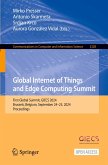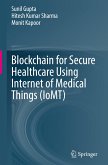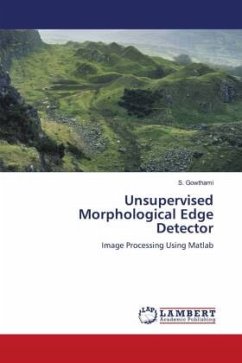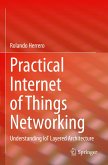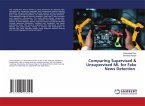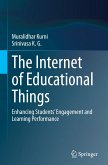The advent of Internet of Things (IoT) has paved the way for sensing the environment and smartly responding. This can be further improved by enabling intelligence to the system with the support of machine learning and deep learning techniques. This book describes learning algorithms that can be applied to IoT-based, real-time applications and improve the utilization of data collected and the overall performance of the system.
Many societal challenges and problems can be resolved using a better amalgamation of IoT and learning algorithms. "Smartness" is the buzzword that is realized only with the help of learning algorithms. In addition, it supports researchers with code snippets that focus on the implementation and performance of learning algorithms on IoT based applications such as healthcare, agriculture, transportation, etc. These snippets include Python packages such as Scipy, Scikit-learn, Theano, TensorFlow, Keras, PyTorch, and more.
Learning Algorithms for Internet of Things provides you with an easier way to understand the purpose and application of learning algorithms on IoT.
What you'll Learn
Supervised algorithms such as Regression and Classification.Unsupervised algorithms, like K-means clustering, KNN, hierarchical clustering, principal component analysis, and more.Artificial neural networks for IoT (architecture, feedback, feed-forward, unsupervised).Convolutional neural networks for IoT (general, LeNet, AlexNet, VGGNet, GoogLeNet, etc.).Optimization methods, such as gradient descent, stochastic gradient descent, Adagrad, AdaDelta, and IoT optimization.
Who This Book Is For
Students interested in learning algorithms and their implementations, as well as researchers in IoT looking to extend their work with learning algorithms
Hinweis: Dieser Artikel kann nur an eine deutsche Lieferadresse ausgeliefert werden.
Many societal challenges and problems can be resolved using a better amalgamation of IoT and learning algorithms. "Smartness" is the buzzword that is realized only with the help of learning algorithms. In addition, it supports researchers with code snippets that focus on the implementation and performance of learning algorithms on IoT based applications such as healthcare, agriculture, transportation, etc. These snippets include Python packages such as Scipy, Scikit-learn, Theano, TensorFlow, Keras, PyTorch, and more.
Learning Algorithms for Internet of Things provides you with an easier way to understand the purpose and application of learning algorithms on IoT.
What you'll Learn
Supervised algorithms such as Regression and Classification.Unsupervised algorithms, like K-means clustering, KNN, hierarchical clustering, principal component analysis, and more.Artificial neural networks for IoT (architecture, feedback, feed-forward, unsupervised).Convolutional neural networks for IoT (general, LeNet, AlexNet, VGGNet, GoogLeNet, etc.).Optimization methods, such as gradient descent, stochastic gradient descent, Adagrad, AdaDelta, and IoT optimization.
Who This Book Is For
Students interested in learning algorithms and their implementations, as well as researchers in IoT looking to extend their work with learning algorithms
Hinweis: Dieser Artikel kann nur an eine deutsche Lieferadresse ausgeliefert werden.


